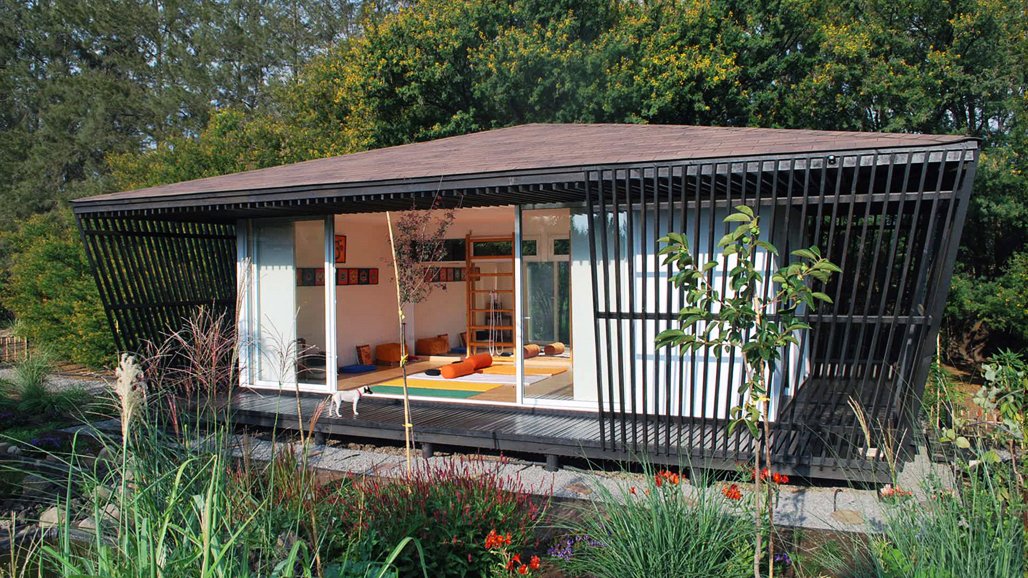#13371. Modern pavilion with rhythmic vertical facade in Japanese style

This image showcases an elegant minimalist pavilion that represents a contemporary interpretation of a Japanese tea room. The building's facade is particularly remarkable for its contrasting combination of openness and protection. The main volume is a simple rectangular pavilion with a flat pitched roof, but its architectural character is formed by the expressive solution of the facade with vertical slats.
The dark vertical louvers, evenly spaced around the perimeter, create a dynamic rhythm and serve not only as a decorative element but also as a functional sunscreen. This solution allows control over the degree of privacy and interior lighting. One side of the facade is almost completely open thanks to panoramic glazing, creating a direct connection with the surrounding natural landscape.
The interior is visible through large glass panels and shows a minimalist space with low furniture characteristic of Japanese aesthetics. The wooden decking around the pavilion creates a transition zone between architecture and nature, enhancing the sense of the pavilion as a meditative space.
When designing a facade for your own home, you can borrow such an approach using vertical louvers to create a rhythmic pattern that simultaneously provides privacy and sun protection without losing visual connection with the surroundings. It's also worth noting the effectiveness of using contrasting materials: dark structural elements of the facade combined with light walls and large glass surfaces.